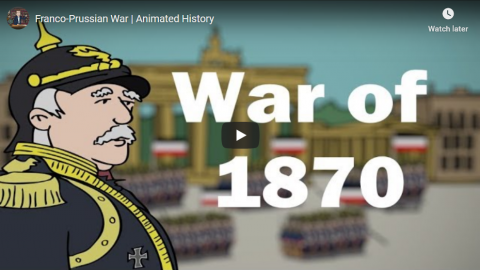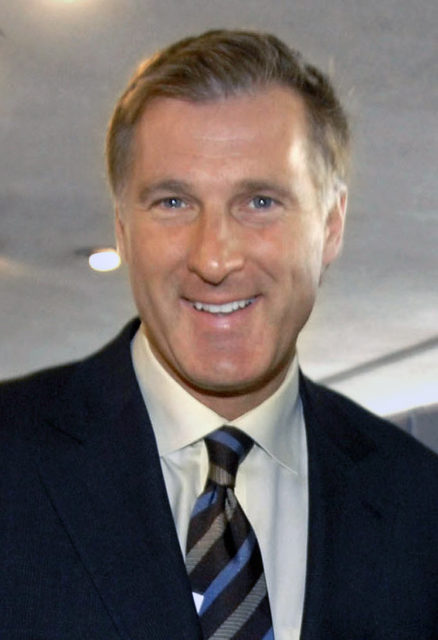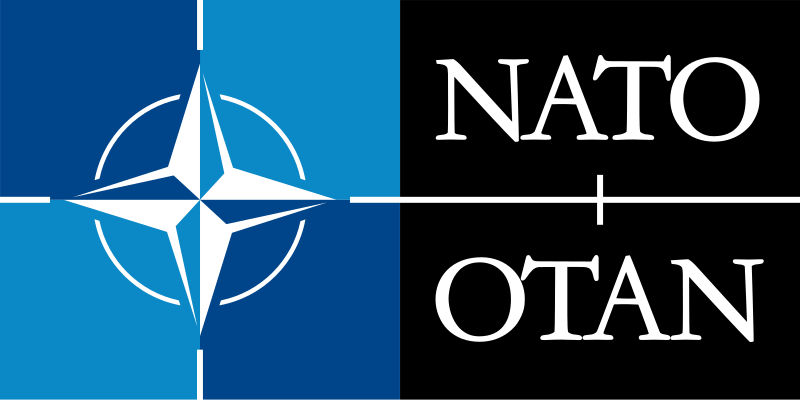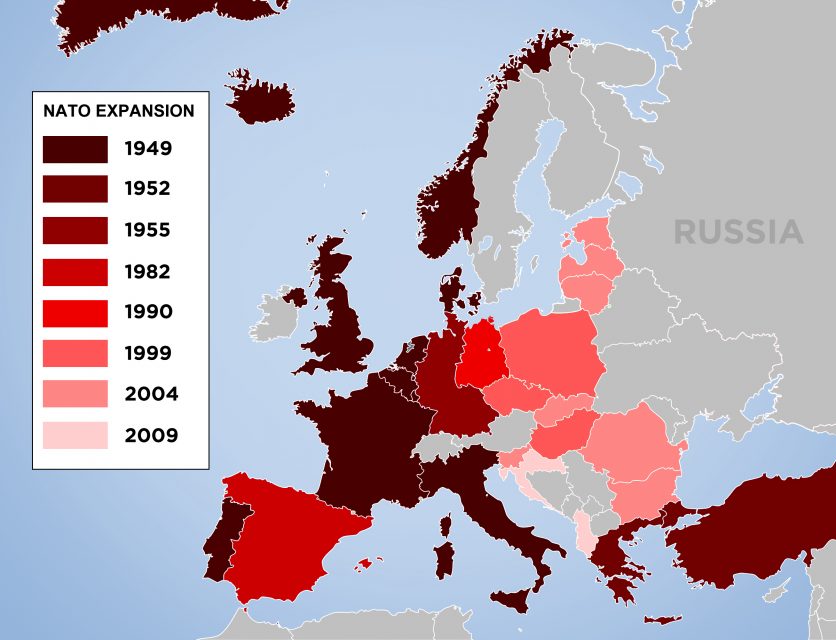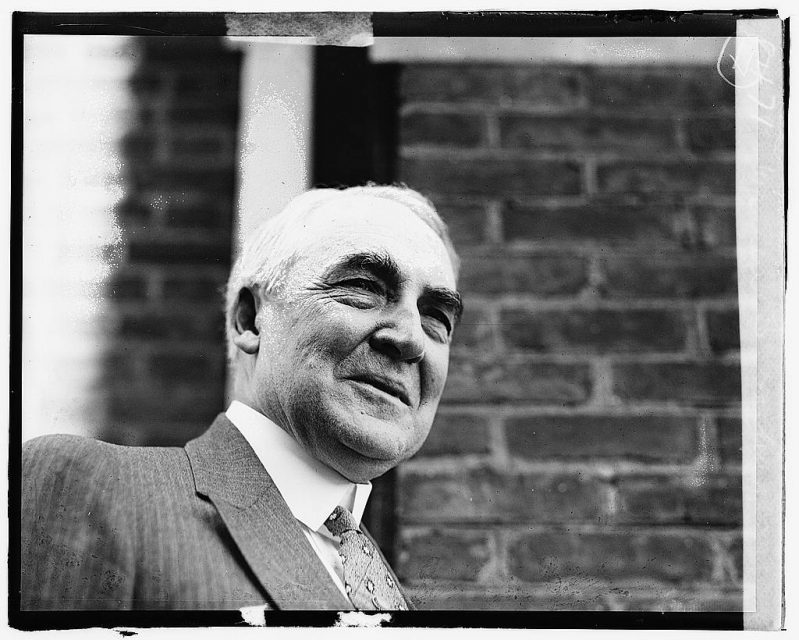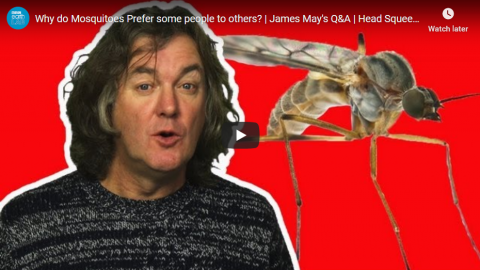Let us take the case of Thales of Miletus (c620-c546 BC), one of the earliest of Greek philosophers. This story is told of him by Aristotle:
There is the anecdote of Thales the Milesian and his financial device, which involves a principle of universal application, but is attributed to him on account of his reputation for wisdom. He was reproached for his poverty, which was supposed to show that philosophy was of no use. According to the story, he knew by his skill in the stars while it was yet winter that there would be a great harvest of olives in the coming year; so, having a little money, he gave deposits for the use of all the olive-presses in Chios and Miletus, which he hired at a low price because no one bid against him. When the harvest-time came, and many were wanted all at once and of a sudden, he let them out at any rate which he pleased, and made a quantity of money.
Whether this is a true story about Thales, or even of market conditions in Miletus, is of no importance. What is important is the unvoiced background to the story. It cannot easily be taken as an instance of the predatory capitalism that Polanyi and Finley are willing to grant to the ancient world. Thales decided that there would be a good olive crop. He did not buy olive presses. Instead, he took out options on them. He and those who dealt with him, seem to have understood the nature of the deal made. When it turned out that Thales had predicted right, he seems to have had no trouble enforcing his contracts. This assumes a familiarity of the courts with such contracts, and a commercial state of mind either among the peoples of Chios and Miletus, or — assuming the story is apocryphal — among Aristotle’s Athenian audience.
Many of the Greek city states were considerable trading centres. They lack any detailed commercial histories. Certainly, no ancient writer thought it consistent with the dignity of history to describe their economic structure and the causes of their commercial greatness. But this casual anecdote must stand in place of the unwritten histories as evidence for thriving and sophisticated financial economies.
Sean Gabb, “Market Behaviour in the Ancient World: An Overview of the Debate”, 2008-05.
December 12, 2019
QotD: Economic sophistication in ancient Greece
December 11, 2019
6 Simple Woodworking Christmas Projects | Paul Sellers
Paul Sellers
Published 10 Dec 2019Paul has put together his favourite simple woodworking projects to make as gifts. Make someone special a handmade Christmas gift they’ll treasure for years to come!
All these projects are available to view with a free membership on Woodworking Masterclasses, see the link to each project below:
00:26 Cutting Board – http://bit.ly/359UL79
1:10 Soup Spoon – http://bit.ly/2E9PsIZ
2:00 Wooden Coasters – http://bit.ly/35876bX
2:42 Dovetail Caddy – http://bit.ly/38rp8bd
3:29 Dovetail Boxes – http://bit.ly/2LHyNke
4:34 Wooden Tray – http://bit.ly/38sOJ3U——————–
Want to learn more about woodworking?
Go to Woodworking Masterclasses for weekly project episodes: http://bit.ly/2JeH3a9
Go to Common Woodworking for step-by-step beginner guides and courses: http://bit.ly/35VQV2o
http://bit.ly/2BXmuei for Paul’s latest ventures on his blog
Franco-Prussian War | Animated History
The Armchair Historian
Published 4 Feb 2018What was the Franco Prussian War?
Our Website: https://www.thearmchairhistorian.com/
Our Twitter:
@ArmchairHistOur Discord:
https://discord.gg/Ppb2cUdSources:
https://www.britannica.com/event/Fran…
http://francoprussianwar.com/
http://history-world.org/franco_pruss…
http://www.newworldencyclopedia.org/e…
https://www.warhistoryonline.com/hist…
http://geacron.com/home-en/?v=m&lang=…Music: Music: Antonio Salieri: “Twenty six variations on La Folia de Spagna“
QotD: Charles I and the Civil War
With the ascension of Charles I to the throne we come at last to the Central Period of English History (not to be confused with the Middle Ages, of course), consisting in the utterly memorable Struggle between the Cavaliers (Wrong but Wromantic) and the Roundheads (Right and Repulsive).
Charles I was a Cavalier King and therefore had a small pointed beard, long flowing curls, a large, flat, flowing hat, and gay attire. The Roundheads, on the other hand, were clean-shaven and wore tall, conical hats, white ties, and sombre garments. Under these circumstances a Civil War was inevitable.
The Roundheads, of course, were so called because Cromwell had all their heads made perfectly round, in order that they should present a uniform appearance when drawn up in line.
Besides this, if any man lost his head in action, it could be used as a cannon-ball by the artillery (which was done at the Siege of Worcester).
For a long time before the Civil War, however, Charles had been quarrelling with the Roundheads about what was right. Charles explained that there was a doctrine called the Divine Right of Kings, which said that:
(a) He was King, and that was right.
(b) Kings were divine, and that was right.
(c) Kings were right, and that was right.
(d) Everything was all right.
But so determined were the Roundheads that all this was all wrong that they drew up a Petition called the Petition of Right to show in more detail which things were wrong. This Petition said:
(a) That it was wrong for anyone to be put to death more than once for the same offence.
(b) Habeas Corpus, which meant that it was wrong if people were put in prison except for some reason, and that people who had been mutilated by the King, such as Prynne, who had often had his ears cut off, should always be allowed to keep their bodies.
(c) That Charles’s memorable methods of getting money, such as Rummage and Scroungeage, were wrong. But the most important cause of the Civil War was Ship Money
Charles I said that any money which was Ship Money belonged to him; but while the Roundheads declared that Ship Money could be found only in the Cinq Ports, Charles maintained that no one but the King could guess right which was Ship Money and which wasn’t. This was, of course, part of his Divine Right. The climax came when a villager called Hampden (memorable for his dauntless breast) advised the King to divine again. This so upset Charles that he went back to Westminster, and after cinquing several ports burst into the House of Commons and asked in a very royal way for some birds which he said were in there. The Parliament, who were mostly Puritans, were so shocked that they began making solemn Leagues and Countenances. Charles therefore became very angry and complaining that the birds had flown raised his standard at Nottingham and declared war against Hampden and the Roundheads.
The War
At first the King was successful owing to Prince Rupert of Hentzau, his famous cavalry leader, who was very dashing in all directions. After this, many indecisive battles were fought at such places as Newbury, Edgehill, Newbury, Chalgrove Field, Newbury, etc., in all of which the Cavaliers were rather victorious.
The Roundheads therefore made a new plan in order to win the war after all. This was called the SelfDenying Ordnance and said that everyone had to deny everything he had done up to that date, and that nobody was allowed to admit who he was: thus the war could be started again from the beginning. When the Roundheads had done this they were called the New Moral Army and were dressed up as Ironclads and put under the command of Oliver Cromwell, whose Christian name was Oliver and who was therefore affectionately known as `Old Nick’. Cromwell was not only moral and completely round in the head but had a large (round) wart on the nose. He was consequently victorious in all the remaining battles such as Newbury, Marston Moor, Edgehill (change for Chalgrove), Naseby, Newbury, etc.
Blood and Ironclads
When Charles I had been defeated he was brought to trial by the Rump Parliament so-called because it had been sitting for such a long time and was found guilty of being defeated in a war against himself, which was, of course, a form of High Treason. He was therefore ordered by Cromwell to go and have his head cut off (it was, the Roundheads pointed out, the wrong shape, anyway). So romantic was Charles, however, that this made little difference to him and it is very memorable that he walked and talked Half an hour after his Head was cut off.
On seeing this, Cromwell was so angry that he picked up the mace (the new and terrible Instrument of Government which he had invented) and, pointing it at the Head, shouted: “Take away that Marble,” and announced that his policy in future would be just Blood and Ironclads.
W.C. Sellar & R.J. Yeatman, 1066 And All That, 1930.
December 10, 2019
Warren Kinsella, the PPC, and “Operation Cactus”
Kate at SDA linked to this interesting article by James Di Fiore on the Conservative Party’s contract with Warren Kinsella to smear Maxime Bernier and the PPC in the run-up to the Fall election:
If you were new to this country, or part of our sect of apathetic voters, there was a good chance you walked away from the election believing Bernier and his party were nothing but a bunch of racists who thought they finally found a home. From there, being branded the racist party in Canada, all the media had to do was either ignore the PPC, or only run negative stories, not wanting to be seen as an outlet giving positive coverage to what was deemed as obvious bigotry.
Enter Warren Kinsella.
I sometimes wonder how well-known Kinsella really is. Everyone in the Ottawa and Toronto bubble knows him. The media and party members know him. But he’s not exactly a household name, until now maybe. Kinsella, a throwback operative going back to the Chretien years, still manages to convince people to hire him, despite having a reputation of being hopelessly unsavoury, where the ends always justifies the means as long as you remind everyone along the way how great of a person you are.
Kinsella was hired by the Conservative Party of Canada to execute a campaign painting The People’s Party of Canada as a haven for bigotry and white nationalism. Secretly recorded by an employee, Kinsella was heard giving his team a pep talk on how to effectively destroy Bernier. He even tried to reinforce his motivational speech by bragging about falsely smearing three prominent politicians as racists when he knew they were not. He tries to catch himself by saying how easy it is to smear Bernier as a racist because, as Kinsella put it, “this guy actually is a racist.”
When a strong federal party hires a notoriously unethical operative to smear a new party as a gang of racists and bigots, it can be difficult to define your own brand. I asked Bernier if he thought there was a reason some racists did seem drawn to his party’s platform.
“It happened when Preston Manning started the Reform Party more than 25 years ago. People were saying that party was a racist party. The Conservative Party and Kinsella tried to do the same thing with us. That’s why I am looking at all my options to look at the legal procedures that we can do.”
Bernier might have a very strong case, especially now that Kinsella’s mask has been taken off by his own hand.
“The Conservative Party of Canada is morally and intellectually corrupt, and they proved that with their contract with Kinsella.”
It is still unknown how much the CPC and Kinsella impacted Bernier’s party, but it is reasonable to believe Kinsella was ultimately successful. On September 29th, at an event in Hamilton, several protestors accosted event attendees as they tried to get into the building at Mohawk College. The aggressiveness of the demonstrators was palpable as they screamed at seniors, calling them Nazis and preventing them from entering the building. Instances like this make Kinsella’s contract all the more mysterious. After all, his job, according to his own admission, was to activate Canadians against Bernier by stoking the flames of racial intolerance.
There are questions as to whether Kinsella’s fingerprints are on several other party missteps and controversies, including a rash of resignations earlier this year when former loyalists mysteriously began trashing the party publicly.
Operatives normally do not get caught bragging about having a track history of how their lies about other people’s bigotry have been successfully used to disrupt campaigns. In Bernier’s case, Kinsella, a self-proclaimed, lifelong fighter for racial justice, actually spent a career monetizing racial divisions he helped to stoke. When his shtick was exposed through his own accidental confessions, the hindsight view of Maxime Bernier became less blurry.
“NATO [reminds] me of the pre-reformation medieval church. Their stated objectives sound Godly and noble but their true purpose is to keep a bloated priesthood in luxury”
NATO still exists, decades after the threat it was designed to counter dissolved. Tom Paine wonders why this is so:
The dismal science teaches us to distinguish between peoples’ stated preferences (often virtue-signalling lies) and their revealed preferences (how they spend their money). All NATO members say they believe in the alliance. Only four — the USA, the UK, Poland and Greece — meet their obligation to contribute more than 2% of their GDP. If you’re wondering, Greece has only accidentally met that target because of the catastrophic fall in its GDP.
Opinion polls and my own experience of the bitter, sneering anti-Americanism of my otherwise delightful continental chums suggest that as usual the revealed preference is the truth. The Germans and French would not go to war in defence of America or Britain if we were attacked. Britain was attacked, when the Falklands were invaded, and our “allies” and “friends” sold arms to our enemies and gave them all kinds of moral support. Remember the Welsh Guards (my grandfather’s old regiment) massacred by Exocets fired from Mirages? The USA has often gone to war since the alliance was formed and mostly only British warriors fought, died or were injured alongside theirs.
Germany, France and their freeloading friends have quite simply been taking the piss from the outset. They take the Americans (and us Inselaffen and rosbifs) for mugs. They plot to form an EU Army and regret that Brexit means they won’t be able to continue to rely on English-speakers as their cannon-fodder.
The continued existence of NATO has fuelled the epic paranoia of Russia’s military/intelligence apparatus. Desperate not to be decommissioned the generals and chekists have claimed that “the West” they grew up opposing is intrinsically hostile — rather than, in truth, insultingly indifferent — to Mother Russia. Their only “proof” of this nonsense was NATO.
[…]
NATO is yet another of many examples of the truism that, once a bureaucracy acquires a competence, it will never disband. It continues because it can. The political and economic ills that drove the creation of what is now called the EU have long since faded into history. But the plump parasites of its apparatus have repeatedly repurposed it. Britain is a paradise of social, ethnic and sexual equality compared to the days when the precursors of the Equalities Commission were formed but its staff will find imaginary evils by the thousand before they’ll return to productive labour. Marx would gasp at the generosity of Britain’s welfare state and marvel at the lifestyle of even the poorest Brit and yet trivial micro aggressions are enough to sustain the revolutionary fervour of Marxist academics desperate to live as idly and unproductively as the man himself.
In praise of Warren Gamaliel Harding
At Essays in Idleness, David Warren says nice things about an American president who rarely gets any love from historians:
Like most politicians, W. G. Harding was only semi-literate, yet well above the average. The Ivy League types are still querying his use of “normalcy,” which the Natted States president used during his election campaign of 1920. Harding himself ranks low in the polls of “Great American Presidents,” though he was quite popular until his death. That mistake, committed after a heart attack in San Francisco, anno 1923, was the first of several. It was discovered that his administration had been rather corrupt, and himself guilty of an adultery. One might say he was “impeached,” posthumously. Today, they impeach Republican presidents for breathing.
Warren Gamaliel Harding is naturally among my favourite presidents. This has something to do with his “return to normalcy.” For the better part of a decade, his countrymen had suffered under the ministrations of progressive Democrats, such as the unspeakable Woodrow Wilson, and from such foreign entanglements as the First World War. The federal budget was being blown to heck, and society was on the verge of the Jazz Age.
Harding, who stayed home in Marion, Ohio, for most of his presidential campaign — rather than “pressing the flesh” and risking the influenza — won by a landslide, promising: “Not heroics, but healing; … not revolution, but restoration; not agitation, but adjustment; not surgery, but serenity; not the dramatic, but the dispassionate; not experiment, but equipoise; not submergence in internationality, but sustainment in triumphant nationality.”
Oh yes and, “not nostrums, but normalcy.”
The quote, which I have filched from the Wicked Paedia, is semi-literate throughout. Harding was a man who had an unhealthy relationship with a dictionary, and to his other sins, we must add an addiction to semi-colons. Still, “The Peeple” could guess what he meant. He wanted America to move backwards. He thought the whole country should forget about recent lunatic adventures, and return to her wonted calm.
Al Stewart wrote a song called “Warren Harding” (lyrics here):
Before the Lewis Gun was the McClean Automatic Rifle
Forgotten Weapons
Published 18 Oct 2019This is Lot 1158 in the upcoming October Morphy Extraordinary auction.
Samuel McClean was a medical doctor from Iowa who began tinkering with firearms designs in 1889, and formed the McClean Arms Company in 1896. He was an intelligent and talented designer, but never quite managed to get a gun good enough for military acceptance. His work included bolt actions rifles, self-loading shoulder rifles, machine guns, and self-loading cannons. By 1910 his company had gone bankrupt twice, and he was forced out by his investors. Isaac Newton Lewis was brought in, and turned McClean’s initial concepts into the ultimately-successful Lewis Machine gun.
However, McClean made one least attempt to produce his own gun after World War One. This is the McClean Automatic Rifle, and it was tested by the US Navy in 1919 – and rejected. This pattern uses an operating system similar to McClean’s early work, and thus also quite similar to the Lewis gun. Instead of two large locking lugs, however, it has several dozen small lugs in two rows on each side of the bolt. The gas piston is also huge by modern standards; over an inch in diameter. The gun is unfortunately missing its magazine Still, it is the only example of the type known to exist, and probably the only one ever manufactured.
http://www.patreon.com/ForgottenWeapons
Cool Forgotten Weapons merch! http://shop.bbtv.com/collections/forg…
Contact:
Forgotten Weapons
6281 N. Oracle #36270
Tucson, AZ 85704
QotD: British breakfast – “Not a snack but a serious meal”
First of all, then, breakfast. Ideally for nearly all British people, and in practice for most of them even now, this is not a snack but a serious meal. The hour at which people have their breakfast is of course governed by the time at which they go to work, but if they were free to choose, most people would like to have breakfast at nine o’clock. In principle the meal consists of three courses, one of which is a meat course. Traditionally it starts with porridge, which is made of coarse oatmeal, sodden and then boiled into a spongy mess: it is eaten always hot, with cold milk (better still, cream) poured over it, and sugar. Breakfast cereals, which are ready-cooked preparations of wheat or rice, taken cold with milk and sugar, are often eaten instead of porridge. After this comes either fish, usually salt fish, or meat in some form, or eggs in some form. The best and most characteristically British form of salt fish is the kipper, which is a herring split open and cured in wood-smoke until it is deep brown colour. Kippers are either grilled or fried. The usual breakfast meat dishes are either fried bacon, with or without fried eggs, grilled kidneys, fried pork sausages, or cold ham. British people favour a lean, mild type of bacon or ham, cured with sugar and nitre rather than with salt. At normal time it is not unusual to eat grilled beef steaks or mutton chops at breakfast, and there are still old-fashioned people who like to start the day with cold roast beef. In some parts of the country, for instance in East Anglia, it is usual to eat cheese at breakfast.
After the meat course comes bread, or more often toast, with butter and orange marmalade. It must be orange marmalade, though honey is a possible substitute. Other kinds of jam are seldom eaten at breakfast, and marmalade does not often appear at other times of [the] day. For the great bulk of British people, the invariable breakfast drink is tea. Coffee in Britain is almost always nasty, either in restaurants or in private houses; the majority of people, though they drink it fairly freely, are uninterested in it and do not know good coffee from bad. Of tea, on the other hand, they are extremely critical, and everyone has his favourite brand and his pet theory as to how it should be made. Tea is always drunk with milk, and it is usual to brew it very strong, about one spoonful of dry tea leaves being allowed for each cup. Most people prefer Indian to Chinese tea, and they like to put sugar in it. Here, however, one comes upon a class distinction, or more exactly a cultural distinction. Virtually all British working-people put sugar in their tea, and indeed will not drink tea without it. Unsweetened tea is an upper-class or middle-class habit, and even in those classes it tends to be associated with a Europeanised palate. If one made a list of the people in Britain who prefer wine to beer, one would probably find that it included most of the people who prefer tea without sugar.
After this solid breakfast – and even now, in a time of rationing, it is usual to eat a fairly large bulk of food, chiefly bread, at breakfast – it is natural that the midday meal should be somewhat lighter than it is in many other countries.
George Orwell, “British Cookery”, 1946. (Originally commissioned by the British Council, but refused by them and later published in abbreviated form.)
December 9, 2019
All the Guns on an M4 Sherman Tank (with Nicholas Moran, the Chieftain)
Forgotten Weapons
Published 7 Dec 2019Try out World of Tanks with a special bonus tank using this link!
https://tanks.ly/ForgottenWeapons
Today Nicholas Moran (the Chieftain) and I are at DriveTanks.com courtesy of Wargaming.net, to show you around a World War Two Sherman tank and all its various armaments. We will discuss and shoot the bow machine gun, coaxial machine gun, commander’s hatch machine gun, antiaircraft .50 cal M2 machine gun, 76mm high velocity main gun, and the crew’s small arms, an M3 Grease Gun and a 1911 pistol.
If you enjoy this video, check out World of Tanks – and maybe they will send Nicholas and I back again to do the same thing for a different tank!
http://www.patreon.com/ForgottenWeapons
Cool Forgotten Weapons merch! http://shop.bbtv.com/collections/forg…
Contact:
Forgotten Weapons
6281 N. Oracle #36270
Tucson, AZ 85704
Detroit Lions struggle to score in low-voltage game against the Minnesota Vikings
 Looking to get back on track after last week’s disappointing trip to Seattle, the 8-4 Minnesota Vikings hosted divisional rivals the 3-8-1 Detroit Lions at US Bank Stadium in Minneapolis on Sunday afternoon. The Vikings were again without the services of star wide receiver Adam Thielen, who suffered a hamstring injury early in the last game against Detroit. The Lions started their backup quarterback, as starter Matthew Stafford has a back injury that needs time to heal. This might sound like a tough situation for the Lions, but backup quarterbacks have done well against the Vikings in earlier games this season.
Looking to get back on track after last week’s disappointing trip to Seattle, the 8-4 Minnesota Vikings hosted divisional rivals the 3-8-1 Detroit Lions at US Bank Stadium in Minneapolis on Sunday afternoon. The Vikings were again without the services of star wide receiver Adam Thielen, who suffered a hamstring injury early in the last game against Detroit. The Lions started their backup quarterback, as starter Matthew Stafford has a back injury that needs time to heal. This might sound like a tough situation for the Lions, but backup quarterbacks have done well against the Vikings in earlier games this season.

US Bank Stadium, home of the Minnesota Vikings by “www78”
“Viking Stadium” by www78 is licensed under CC BY-NC 2.0
The Minnesota defence seemed to be a bit more like its traditional self, batting down two passes on the Lions’ first possession and sacking quarterback David Blough to force a punt, but the high-scoring Vikings offence seemed … somewhat underpowered. Although the score was 17-0 at the half, the Vikings should have been up a few more scores but for just enough miscues to derail drives outside the red zone. Defensive end Danielle Hunter got some attention from the broadcast team as the first of his three sacks put him up to 50 in his career, and he’s the youngest player to get 50 sacks in the NFL.
The Vikings defence kept the Lions out of the end zone until less than three minutes remained in regulation time, playing the dreaded “prevent” to avoid giving up long pass plays. Judd Zulgad was hoping to see some improvement over the Seattle game, but says this game really didn’t show it:
The only thing worse than the Lions might have been the fact the crowd of 66,776 fans was subjected to the look-at-me officiating work of referee Walt Anderson and his crew. A game after Clete Blakeman’s crew threw an NFL season-low four flags on Monday in Seattle, Anderson and Co. called nine penalties in the first half and 12 in the game.
The problem with this game was is it came at a time when you would like to see which direction a team is trending, Sunday provided no clarity when it comes to the Vikings. The Vikings weren’t alone. The Green Bay Packers (10-3) remained a game ahead of the Vikings (9-4) in the NFC North after beating a terrible Washington team (3-10) at Lambeau Field.
The Vikings should get a better test next Sunday against the Los Angeles Chargers simply because it’s a road game. The Chargers entered Sunday’s game against another bottom-feeder, Jacksonville, with a 4-8 record. The next real test for the Vikings should be in Week 16 against the Packers in a Monday night game at U.S. Bank Stadium.
Entering Sunday, the Vikings had beaten seven teams with records below .500 and only one (Oakland) with a .500 record. Their four losses had come against teams with winning records (Green Bay, Chicago, Kansas City and Seattle).
That’s part of the reason why it’s extremely difficult to see the Vikings being capable of making a Super Bowl run and impossible to do so if they end up as a wild card team and have to win three times on the road. The Vikings’ too-easy-victory on Sunday did nothing to change that feeling.
And finally, the Buy/Sell recommendations from Ted Glover’s post-game Stock Market Report at the Daily Norseman:
Buy: The defensive effort today. I was kind of concerned heading into this game. Rookie David Blough put over 280 yards passing on the Bears defense last week, and Mike Zimmer has a maddening habit of playing a fairly vanilla defense to start a game, allowing young QB’s like Brandon Allen of the Broncos to light up the VIkes like a Christmas tree. Today, the defense set the tone, blitzing and hurrying Blough from the first series, and completely stonewalling a top 10 NFL offense until the game was well decided.
Sell: Offensive penalty on 4th and 1 from the Lions four. In the second quarter the Vikings had a nice drive going, moving from their 35 to the Detroit four. On 4th and one, Mike Zimmer decided to go for it, and Dalvin Cook appeared to get two yards and a first down, setting up a first and goal. But the offense wasn’t set, they were called for an illegal procedure penalty, and Minnesota had to settle for a field goal. Against a better team on a different day, that could have been potentially huge.
Buy: Two minute drive to end the half. After the Prater missed knuckleball, the Vikes took over on their 35 with 1:06 and two timeouts left before halftime. What ensued is what I would argue might be the best two minute drive of the Zimmer era. A combination of great play calling, exceptional use of timeouts, and perfect execution on a big play got the Vikings close to the end zone:
.@KirkCousins8 and @stefondiggs just make it look effortless.#ProBowlVote pic.twitter.com/zhSRmQOaEA
— Minnesota Vikings (@Vikings) December 8, 2019
Again, note the great protection for Cousins. It was a great throw, great catch, and two plays later Dalvin Cook walked in, giving Minnesota a 17-0 lead into the locker room.
Sell: Not stepping on the gas pedal to open the second half. Yet, the Vikings didn’t really do anything with that momentum coming out of the half. It seemed like Minnesota went into ‘kill the clock mode’ as opposed to ‘go for the throat’ mode, and part of me understands it. You have a big lead, the Lions have shown zero life on offense, and Minnesota was in complete control of the game. Yet we’ve seen first hand how tenuous 17…or 20…point leads can be.
A weird bounce, a turnover, or a busted play could completely turn the game around, and now what was a game you had in the bag is very much NOT in the bag. For example, on the Vikes first drive, a makeable third and five went to waste when Cousins threw a deep, low percentage pass to Alexander Hollins. Punt. On their second drive, the third and seven call was a run to the left by Dalvin Cook that went for no gain. Punt. The defense remained stout throughout, and the Lions got nothing going until the game was pretty much over, so it wasn’t a big deal. Still, for as much as Mike Zimmer preaches the importance of closing the first half with points and bookending that with points to open the second half, the lack of urgency there was weird.
Buy: Benching Rhodes to start the game. I like the move to bench Xavier Rhodes early in the game. The stat sheet says Rhodes started, but it looked like Mike Hughes started in his place, and played a good part of the first half. Rhodes did play, and it seemed like he responded. I liked it because it sent a message to the defense that they needed to play better, and it appears that the defense got the message loud and clear, as they played as well as they have in two months.
Sell: Walt Coleman’s officiating crew. What a joke of a crew. Their inability to correctly call the most basic of plays is balanced out by their penchant for throwing a flag just as the game is getting into a rhythm. Ticky tack penalties, a blown call that caused Zimmer to throw a challenge flag to overturn, when the side judge was literally looking at the drop happen? It was just a terribly called game.
Buy: This was a boring game. No, it won’t be the NFL Game of the Week, and yeah, it was kind of a snoozefest, but it’s a win. And it’s nine wins for the Vikings on the year, and one game closer to a playoff spot. I’ll happily take it.
Sell: Exciting losses are better. I would rather watch a boring win than sit through an exciting loss, like we saw happen between the 49ers and Saints.
Policing London – The Fall of Jonathan Wild – Extra History – #2
Extra Credits
Published 7 Dec 2019Jonathan Wild had the whole crime system figured out. A man of justice by day, and leader of a criminal empire by night. But that is when Jack Sheppard came into his life. Jack Sheppard was a talented thief but an even more talented escape artist. And one of the last criminals in London who refused to bend the knee to Jonathan Wild. This was unacceptable. Jonathan Wild became obsessed. But obsessions can be dangerous. Every prison escape causes Sheppard’s popularity amongst the people, sick and tired of corruption, to grow. And the consequences may be deadly.
Join us on Patreon! http://bit.ly/EHPatreon
Nikki Haley, 2024?
Ted Campbell looks at the US political scene and wonders if Nikki Haley will be the President after the 2024 federal election:

President Donald Trump and Ambassador Nikki Haley at the United Nations Headquarters in New York City, 24 September, 2018.
Official White House photograph by Shealah Craighead via Wikimedia Commons.
Following on from my previous post, I suspect that former Governor (South Carolina) and US Ambassador (to the United Nations) Nikki Haley might be President-elect of the United States five years from now. She is, right now, I think, the wholly unofficial but very clear voice of the post-Trump Republicans. She shares many of the Trumpian aims but she will campaign with a much different mixture of grit and grace, as the title of her recent book (campaign manifesto?) suggests.
It also seems pretty obvious to me, and to some other observers, that Justin Trudeau and the Liberal Party of Canada have decided that they can win a majority in (probably) 2021 by appealing even more strongly to the Laurentian Elites and thereby securing a half dozen more seats in each of Greater Vancouver and in urban Quebec and another dozen in (mainly) South-Western Ontario.
[…]
I think that Ambassador Haley’s comments are a shot across Canada’s bows made on behalf of the American establishment, not just Donald Trump. I suspect her remarks were very carefully crafted and even blessed by influential leaders in government, academe and in the huge array of think tanks in which America’s “government in waiting” resides. She is not speaking for Donald Trump; he can (likely will) speak for himself in his own, inimitable, bullying style. She is speaking for a larger, more permanent establishment, the “deep” administrative state that guards America’s permanent, vital interests.
Canadians need to pay attention. Nikki Haley matters; she (or someone very like her) is the future and she (or that similar someone) is the future to which we must accommodate ourselves for the 2020s and into the 2030s. We must remain a steadfast, trusted member of the US-led West. We, under Mackenzie-King and Louis St Laurent and John Diefenbaker, helped to build the US-led West, we even helped to lead it. Pierre Trudeau wanted to change Canada; he did, but not as much as he wished. His own Liberal ministers would not follow him all the way. Justin Trudeau is following in his father’s deeply flawed strategic footsteps which aim to make Canada irrelevant. He has a much tamer (weaker) cabinet allowing him and Chrystia Freeland to push Canada towards a strategic place where our country will be politically isolated, largely friendless and poor.
Liberals, by which, in the 2020s, I mean Conservatives, must speak out and offer Canadians a better, principled strategic vision which aims to secure our sovereignty, our prosperity and a respectable, responsible, leadership role ~ what Paul Martin called a role of pride and influence ~ in the world. Otherwise, Canada’s very sovereignty is in peril. If, as I expect, Donald Trump is re-elected next year and is then followed in 2024 by another, albeit “kinder, gentler” Trumpian, (which I believe is very likely because I think the Democratic Party in the USA will shatter after the 2020 election and will not be a real force again for a decade or more) then Canada must adapt. The importance of our bilateral relationship with America is to all other things as ten is to one.
Why do Mosquitoes Prefer some people to others? | James May’s Q&A | Head Squeeze
BBC Earth Lab
Published 26 Apr 2013James May imparts some very interesting facts on mosquitoes. So why do they prefer some people to others?
Subscribe: http://bit.ly/SubscribeToEarthLabWelcome to BBC Earth Lab! Here we answer all your curious questions about science in the world around you (and further afield too).




